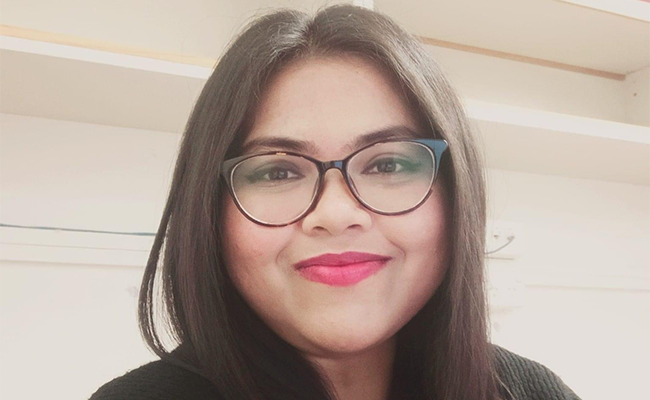
Finding a treatment for healing wounds quicker in diabetics is a personal journey for Otago University biotechnology student Shalini Paul.
Originally from Kolkata, India, Shalini completed a Bachelor of Technology and Master of Engineering in Biotechnology at the Heritage Institute of Technology before receiving a doctoral scholarship to research novel therapeutic treatments using nano technology in the Department of Physiology.
Shalini describes her journey to research nanovesicles – extremely small, fluid-filled sacs – for treatment of diabetic wounds as anything but ordinary.
She came to Dunedin in 2019, just before the COVID-19 pandemic hit and describes its arrival as the “largest and most unexpected challenge, both professionally and personally”.
Having overcome professional hurdles as the pandemic continued, closed borders also meant that, like other international students, she was not able to see friends or family for far longer than anticipated.
“This was quite stressful, but I also believe the experience of working through those initial phases of the pandemic made me evaluate things from a much calmer perspective.
“I would like to believe that everything happens for a reason and, therefore, all of my circumstances have ultimately helped me to grow as a better person.”
Even with the complications brought about by the pandemic, Shalini was motivated by a desire to complete her doctorate in the School of Biomedical Sciences.
Otago's reputation for academic excellence, its state-of-the-art research facilities and the School's research expertise in endocrinology were all drawcards.
Supervised by Associate Professor Rajesh Katare, Shalini's PhD is a rewarding area of inquiry because, depending on its severity, diabetes can delay healing times for both large or minor injuries from a few days to “almost never”, she says.
Bacterial infection can also cause serious complications, such as gangrene. In extreme cases this leads to body parts – most often lower limbs – being amputated.
This has a huge impact on a person's quality of life, and their physical, emotional, and financial wellbeing.
“The therapeutic I have chosen to investigate has direct roles in crucial wound healing processes, including the formation of blood vessels and regeneration of the tissues. I have selected nanovesicles that would encapsulate the therapeutic to deliver it to the cells.”
Shalini says nanovesicles have great potential in the treatment process because they may deliver drugs more efficiently to damaged cells, significantly speeding up the wound healing mechanism.
Shalini hopes her research will produce promising findings, especially because she knows people affected by the disease.
“This disease is a great issue of concern because more than 500 million adults worldwide have been diagnosed with diabetic complications, and the numbers are set to rise to almost 800 million by 2045.
“On a personal level, I have seen how diabetes affects health and the quality of life in my family and so I wanted to devote myself to finding a possible path that could help improve people's lives.”
Despite the challenges, Shalini is proud to have chosen this path and, while she could have pursued more financially rewarding avenues, knows she's in the right place, doing the right work.
“Any students thinking of pursuing higher education should make sure they do their homework and are properly motivated for the task at hand because it comes with a great deal of work.
"That being said, if it is something that you truly want to do, I would encourage you to commit to walking this path and setting personal goals for yourself to get you through the tougher times.
“I know it helped me and I sincerely hope it helps you too as you go on whatever adventure lies ahead.”
Kōrero by Kelsey Schutte, School of Biomedical Sciences Communications Adviser